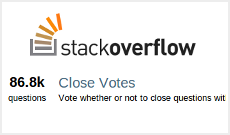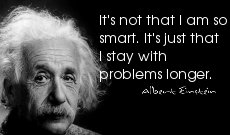When I wrote the code that would run this blog, there was no way I could have left out an RSS feed. Early on, before I wrote any valid HTML, I made sure that each post I write was first available through RSS. If I had stayed a year without posting, the day I do, you'd see a new update on your favorite RSS reader.
But now, RSS is dead. Dead in the sense of a dead technology on the web. This means it still works, you can still use it, but the most popular websites have stopped supporting it. Be it Facebook, twitter, Google, or your favorite news outlet. They all removed all mentions of this really simple syndication from their website.
RSS is a protocol written in XML that allows you to get the latest update of a website, blog, or service. RSS does not send notifications, pings, or emails when there is an update. In fact, all it does is add the latest update at the top of the feed. It is completely up to the software the user uses to read the feed and do something about it.
For example, I use an open source RSS reader on my phone called Flym. What it does is check a bunch of feeds I have subscribed to every hour. The result is then displayed to me in chronological order. No algorithm is involved in sorting. In fact, the publishers of those articles have no control over what I read. If anyone creates too many updates, or slip in some ads, I can filter them out and that is it.
Adding support for RSS on a website is free. It's a simple read only transaction, that requires no update or maintenance. This is a reason why so many websites remove their RSS links, yet still have an RSS feed in their page source. They don't even notice it is there.
But the question remains. Why is RSS dead? Why is it being removed from websites even when it costs nothing to the owners? Why did Firefox remove its reader? Why did google shutdown its aggregator?
The simple answer is, Control.
With RSS, consumers of news and blog posts have control over what they read and how they read it. They can manage their feeds using whatever software they please. The user has ultimate control over how things are displayed and can drop any publisher that misbehaves. But not so if you are consuming news on Facebook, Twitter, or Youtube.
At least once a week, I'll check my twitter feed and see that all the tweets are displayed in what looks like a random order. But that random order, is calculated and curated by twitter to keep me on the app. My Facebook feed is not displayed in the order people posted. It is ordered in a manner that will entice me to spend as much time as possible on the app. The same goes for Youtube.
With RSS dead, the publisher has control over how I consume. They collect information about me and then decide what article or video will make me stay longer on their website. They can track me over the internet and bring me back to their website. All so they can serve me ads.
I still use RSS today despite it being dead. The blogs I care about still make it available. But we are becoming a minority. For the publishers, there is no incentive to give this control to users. I can only see new blog engines slowly removing support for RSS. But for now, you can still subscribe to my RSS feed.




Comments
There are no comments added yet.
Let's hear your thoughts